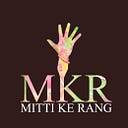Facts about the International Labour Organization
The International Labour Organization (ILO) is the United Nations agency for the world of work. It sets international labor standards, promotes rights at work, and encourages decent employment opportunities, the enhancement of social protection, and the strengthening of dialogue on work-related issues.
Since 1946 the ILO has been a specialized agency of the UN. The Organization aims at promoting social and economic progress and improving labor conditions. The main functions of the ILO are like research and publication of works on social and labor issues.
The ILO Conventions cover a wide area of social and labor issues including basic human rights, minimum wages, industrial relations, employment policy, social dialogue, social security, and other issues. ILO Conventions concerning gender-specific issues have a long history.
India, a Founding Member of the ILO, has been a permanent member of the ILO Governing Body since 1922. The first ILO Office in India started in 1928. The decades of productive partnership between the ILO and its constituents have mutual trust and respect as underlying principles and is grounded in building sustained institutional capacities and strengthening capacities of partners. It has a two-directional focus for socio-economic development: overall strategies and ground-level approaches.
The DW concept is translated into Decent Work Country Programmes (DWCPs), prepared and adopted by the tripartite constituents and ILO, at country levels. The DWCP-India (2007–12), aligned to the 11th Plan and the United Nations Development Assistance Framework, focuses on 3 priorities.
Priority 1: Opportunities enhanced for productive work for women and men, particularly for youth and vulnerable groups, especially through skills development;
Priority 2: Social protection progressively extended, particularly in the context of informatization;
Priority 3: Unacceptable forms of work progressively eliminated.
The cross-cutting issues are the special focus while implementing the DWCP under the three priority areas are:
(a) Social dialogue and strengthening of partners;
(b) Informal economy
© Gender equality.
“COVID-19 is already affecting tens of millions of informal workers. In India, Nigeria, and Brazil, the number of workers in the informal economy affected by the lockdown and other containment measures is substantial,” the ILO report released in Geneva said. The ILO also noted that the pandemic is having a catastrophic effect on working hours and earnings globally.
The new ILO report highlights some of the worst affected sectors and regions and outlines policies to mitigate the crisis.
It found that the crisis is expected to wipe out 6.7 percent of working hours globally in the second quarter of 2020 — equivalent to 195 million full-time workers.”Workers and businesses are facing catastrophe, in both developed and developing economies,” ILO Director-General Guy Ryder said. “We have to move fast, decisively, and together. The right, urgent, measures, could make the difference between survival and collapse.”
The ‘ILO Monitor 2nd edition: COVID-19 and the world of work’, which describes COVID-19 as “the worst global crisis since World War II”, updates an ILO research note published on March 18.
Some Interesting Facts about ILO:
- The International Labour Organisation (ILO) was founded in 1919. The final draft of the organization was accepted in April. Its headquarters are in Geneva, Switzerland, and Guy Ryder is its current director-general.
- In 1969, the International Labour Organisation received the Nobel Peace Prize for maintaining peace and justice among working classes in developing countries.
- India is one of the member states of the ILO that holds “chief industrial importance”. Other nations to share this responsibility are Brazil, China, France, Germany, Italy, Japan, the Russian Federation, the United Kingdom, and the United States. The term of service in this position is for three years. Every year in June, the ILO organizes the International Labour Conference in Geneva where conventions and recommendations are put forth by governments and international agencies and draft guidelines. This is also called the ‘Parliament of Labour’
- The ILO has also set the lowest minimum wage scale for corporations to legally hire employees.
Contributed By- Archit Jain, Content Writer @ Mitti Ke Rang
At Mitti Ke Rang, we started with a COVID-19 community support fundraising, as an emergency response to provide a safety net to families. This will help them survive in the lockdown period. We aim to directly support these families by providing a minimum wage, through transferring the same into their accounts or partner with local NGO, Organisation, Fellow, or a Volunteer and support them with groceries.
You can donate at:
Our Social Media:
LinkedIn — https://www.linkedin.com/in/mitti-ke-rang-mkr-81b230120/
Twitter: https://twitter.com/mitikerang?s=08
Instagram: https://www.instagram.com/mitti_ke_rang?r=nametag
Facebook: https://www.facebook.com/Mitikerang/
YouTube:
